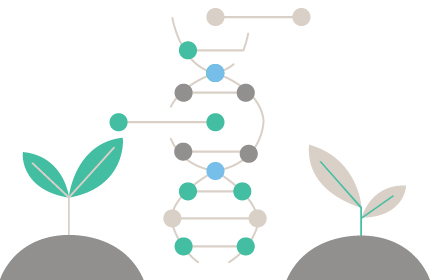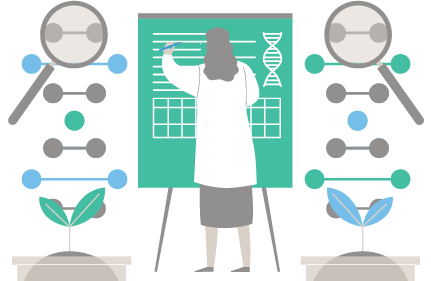Gene Edited Plants: Context and Communication for Plant Breeding Innovation
-
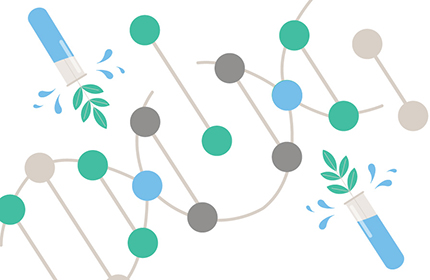
July 19, 2021-July 23, 2021
9:00 am - 12:00 pm(Virtual - Webinar 2)
Seoul, Korea
Gene editing refers to a family of precision plant breeding techniques being used to develop plants with beneficial traits ranging from resistance to abiotic and biotic stresses to nutritional enhancement. While there is no agreed upon international definition for these techniques, gene editing typically makes use of site-directed nucleases (SDNs) to introduce changes at a specific site in the genome. Depending upon the process, the resulting change could range from a point mutation to small sequence changes or potentially to the incorporation of entire genes. The regulation of gene edited plants is the subject of much discussion, particularly those that result from small sequence changes that are indistinguishable from plants produced through conventional mutagenesis methods.
In order to facilitate open and informed dialogue on science and policy, the Agriculture & Food Systems Institute is organizing a webinar series to convene scientists, risk assessors, regulators, and policymakers from academia, industry, and government in the Republic of Korea to discuss gene editing in the context of plant breeding and regulation. These discussions will potentially inform a science-based and transparent policy for the consideration of gene edited agricultural products. This webinar series on gene editing is supported by a grant from the USDA Foreign Agricultural Service, New Technologies and Production Methods Division. The webinars are by-invitation-only events that will cater to researchers, risk assessors, regulators, scientists, and academics in the Republic of Korea. The series is intended to provide Korean stakeholders an opportunity to better understand the technology of gene editing and foster open dialogue between Korean government officials, scientists, and other stakeholders on issues related to new plant breeding technologies.
The introductory webinar took place on April 22, 2021 and featured presentations by six experts from around the world on different aspects of gene editing, followed by a Q&A session, which set the stage for future discussions. This second webinar focused on examples of genome edited plants that have been developed around the world, as well as the approach to their regulation in different countries. In addition to presentations by international experts, attendees had the opportunity to participate in breakout groups, where facilitated discussions on different case studies took place. The opening and closing sessions were live-translated into Korean, and the breakout sessions were facilitated by Korean-speaking moderators.
Subsequent webinars (dates to be determined) will address other topics related to regulatory approaches and communication elements around gene editing.
Agenda
Opening Session
July 19, 2021 | 9:00 am – 12:00 noon KST
| Time | Presentation/Activity | Speaker/Facilitator | |
| 9:00 am | Welcome and Introduction | Dr. Andrew Roberts Chief Executive Officer Agriculture & Food Systems Institute, USA |
|
| 9:05 am | Innovative Breeding Technologies – Regulation in Japan | Dr. Ryo Ohsawa Faculty of Life and Environmental Sciences, University of Tsukuba, Japan |
|
| 9:35 am | Gene Edited High GABA Tomato – Development and Its Notification to Agencies | Prof. Hiroshi Ezura Tsukuba Plant Innovation Research Center, University of Tsukuba & CTO, Sanatech Seeds Co., Ltd., Japan |
|
| 10:05 am | Gene Editing in Pennycress, A New Oilseed Cash Cover Crop | Prof. John Sedbrook School of Biological Sciences Illinois State University, USA |
|
| 10:35 am | Delivering Healthy Food Ingredients to Customers Through TALEN® Technology | Dr. Bobby Williams Gene Editing Director Calyxt, Inc., USA |
|
| 11:05 am | Open Forum, Q&A, and Closing Remarks by Speakers |
Dr. Andrew Roberts Chief Executive Officer Agriculture & Food Systems Institute, USA |
|
| 11:45 am | Overview of the Structure of the Breakout Sessions & An Introduction to the Case Studies | Dr. Bhavneet Bajaj Manager, Scientific Programs Agriculture & Food Systems Institute, USA |
Breakout Session 1
July 20, 2021 | 9:00 am – 11:00 am KST
| Time | Presentation/Activity | Speaker/Facilitator | |
| 9:00 am | Welcome and Introduction | Dr. Andrew Roberts Chief Executive Officer Agriculture & Food Systems Institute, USA |
|
| 9:15 am | Briefing on Case Study 1 | Dr. Bhavneet Bajaj Manager, Scientific Programs Agriculture & Food Systems Institute, USA |
|
| 9:25 am | Facilitated Discussion |
Dr. Yong-Sam Kim Associate Director Genome Editing Research Center, Korea Research Institute of Bioscience and Biotechnology, Korea |
|
| 10:55 am | Concluding Remarks |
Breakout Session 2
July 21, 2021 | 9:00 am – 11:00 am KST
| Time | Presentation/Activity | Speaker/Facilitator | |
| 9:00 am | Welcome and Introduction | Dr. Andrew Roberts Chief Executive Officer Agriculture & Food Systems Institute, USA |
|
| 9:15 am | Briefing on Case Study 2 | Dr. Bhavneet Bajaj Manager, Scientific Programs Agriculture & Food Systems Institute, USA |
|
| 9:25 am | Facilitated Discussion |
Dr. Chee Hark Harn Director, Seed R&BD Headquarters, ToolGen Inc., Korea |
|
| 10:55 am | Concluding Remarks |
Breakout Session 3
July 22, 2021 | 9:00 am – 11:00 am KST
| Time | Presentation/Activity | Speaker/Facilitator | |
| 9:00 am | Welcome and Introduction | Dr. Andrew Roberts Chief Executive Officer Agriculture & Food Systems Institute, USA |
|
| 9:15 am | Briefing on Case Study 3 | Dr. Bhavneet Bajaj Manager, Scientific Programs Agriculture & Food Systems Institute, USA |
|
| 9:25 am | Facilitated Discussion |
Dr. Yong Pyo Lim Department of Horticulture, Chungnam National University, Korea |
|
| 10:55 am | Concluding Remarks |
Concluding Session
July 23, 2021 | 9:00 am – 12:00 noon KST
| Time | Presentation/Activity | Speaker/Facilitator | |
| 9:00 am | Welcome and Introduction | Dr. Andrew Roberts Chief Executive Officer Agriculture & Food Systems Institute, USA |
|
| 9:05 am | Readout from Breakout Session 1 |
Dr. Yong-Sam Kim Associate Director Genome Editing Research Center, Korea Research Institute of Bioscience and Biotechnology, Korea |
|
| 9:15 am | Readout from Breakout Session 2 | Dr. Chee Hark Harn Director, Seed R&BD Headquarters, ToolGen Inc., Korea |
|
| 9:25 am | Readout from Breakout Session 3 | Dr. Yong Pyo Lim Department of Horticulture, Chungnam National University, Korea |
|
| 9:35 am | Risk Assessment and Regulation of Genome Edited Plants: | ||
| Brazil | Dr. Alexandre Nepomuceno General Head, National Soybean Research Center, Embrapa, Brazil |
||
| European Union | Mr. René Custers VIB, Belgium |
||
| Nigeria | Dr. Rufus Ebegba Director General, National Biosafety Management Agency, Nigeria |
||
| Philippines | Dr. Flerida Carino Department of Science and Technology, Biosafety Committee, Philippines |
||
| United States | Dr. Kayla Knilans Biological Scientist, USDA APHIS |
||
| Dr. Deshui Zhang Branch Chief, USDA APHIS |
|||
| 10:50 am | Panel Discussion | Dr. Andrew Roberts (moderator) Chief Executive Officer Agriculture & Food Systems Institute, USA |
|
| 11:35 am | Closing Remarks | All Panelists | |
| 11:55 am | Vote of Thanks | Mr. Mark Dries Minister Counselor for Agricultural Affairs U.S. Embassy Seoul |
Speaker Bios
Innovative Breeding Technologies – Regulation in Japan
Dr. Ryo Ohsawa, Faculty of Life and Environmental Sciences, University of Tsukuba, Japan
 Professor Ryo Ohsawa is currently the Dean of the Faculty of Life and Environmental Sciences at the University of Tsukuba. As a Professor of Plant Breeding, he is involved in projects related to the use and regulation of biotechnology for crop improvement. He has more than 20 years of experience in the field of regulatory science and is a committee member of Environmental Risk Assessment under the Japanese Ministry of Environment and the Ministry of Agriculture, Forestry and Fisheries in Japan. Recently, he chaired a committee on the regulation of genome editing in Japan and summarized the direction for handling genome edited organisms in Japan. So far, Prof. Ohsawa has lectured on Japan’s regulatory response to genome edited crops at the International Society for Biosafety Research (ISBR), China, Taiwan, etc.
Professor Ryo Ohsawa is currently the Dean of the Faculty of Life and Environmental Sciences at the University of Tsukuba. As a Professor of Plant Breeding, he is involved in projects related to the use and regulation of biotechnology for crop improvement. He has more than 20 years of experience in the field of regulatory science and is a committee member of Environmental Risk Assessment under the Japanese Ministry of Environment and the Ministry of Agriculture, Forestry and Fisheries in Japan. Recently, he chaired a committee on the regulation of genome editing in Japan and summarized the direction for handling genome edited organisms in Japan. So far, Prof. Ohsawa has lectured on Japan’s regulatory response to genome edited crops at the International Society for Biosafety Research (ISBR), China, Taiwan, etc.
Professor Ohsawa holds a Ph.D. in Plant Breeding. His basic research interests are in buckwheat and Brassica breeding and regulatory science of new technologies used in breeding.
Prof. Ohsawa is currently the President of the Japanese Society of Breeding and a Senior Program Officer in Research Center for Science Systems, Japanese Society for the Promotion of Science.
Gene Edited High GABA Tomato – Development and Its Notification to Agencies
Prof. Hiroshi Ezura, Tsukuba Plant Innovation Research Center, University of Tsukuba & CTO, Sanatech Seeds Co., Ltd., Japan
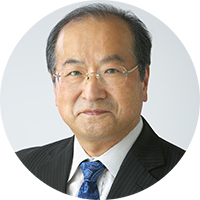 Dr. Hiroshi Ezura is a full professor at the University of Tsukuba, Japan. He is also the director of the Tsukuba Plant Innovation Research Center, University of Tsukuba. He is a scientist in the field of molecular breeding of Solanaceae and Cucurbitaceae crops. His major research interests are research and development of biotechnology including cell and tissue culture, GM crops, and new plant breeding techniques such as gene editing. His recent interests include food security research, and he is focusing on how plant science can contribute to achieving food security in the world. During his career, he has spent a lot of time on the practical application of biotechnologies. He is focusing on the application of gene editing technology for the improvement of horticultural crops like tomato. He led a Japanese national project on the application of gene editing technologies for improvement of agricultural products (SIP project). His team has succeeded in developing a CRISPR-tomato cultivar with high GABA content (High GABA tomato), expecting health-promoting functions in humans. In 2018, he established a UTsukuba-Venture company, and currently serves as the Chief Technology Officer (CTO). The company successfully commercialized gene-edited tomato in Japan in 2021.
Dr. Hiroshi Ezura is a full professor at the University of Tsukuba, Japan. He is also the director of the Tsukuba Plant Innovation Research Center, University of Tsukuba. He is a scientist in the field of molecular breeding of Solanaceae and Cucurbitaceae crops. His major research interests are research and development of biotechnology including cell and tissue culture, GM crops, and new plant breeding techniques such as gene editing. His recent interests include food security research, and he is focusing on how plant science can contribute to achieving food security in the world. During his career, he has spent a lot of time on the practical application of biotechnologies. He is focusing on the application of gene editing technology for the improvement of horticultural crops like tomato. He led a Japanese national project on the application of gene editing technologies for improvement of agricultural products (SIP project). His team has succeeded in developing a CRISPR-tomato cultivar with high GABA content (High GABA tomato), expecting health-promoting functions in humans. In 2018, he established a UTsukuba-Venture company, and currently serves as the Chief Technology Officer (CTO). The company successfully commercialized gene-edited tomato in Japan in 2021.
Gene Editing in Pennycress, A New Oilseed Cash Cover Crop
Prof. John Sedbrook, School of Biological Sciences Illinois State University, USA
 Dr. John Sedbrook is a Professor of Genetics at Illinois State University, having earned his Ph.D. at the University of Wisconsin-Madison and performed postdoctoral research at the Carnegie Institution at Stanford University. Dr. Sedbrook’s research uses cutting-edge molecular methods including CRISPR gene editing to improve plants for their use in generating biofuels, food, feed, and industrial products. Dr. Sedbrook was a founding member of the Department of Energy’s Great Lakes Bioenergy Research Center (GLBRC), and he is now leading multi-institutional interdisciplinary efforts in developing pennycress as an oilseed-producing winter cash cover crop for the U.S. Midwest Corn Belt.
Dr. John Sedbrook is a Professor of Genetics at Illinois State University, having earned his Ph.D. at the University of Wisconsin-Madison and performed postdoctoral research at the Carnegie Institution at Stanford University. Dr. Sedbrook’s research uses cutting-edge molecular methods including CRISPR gene editing to improve plants for their use in generating biofuels, food, feed, and industrial products. Dr. Sedbrook was a founding member of the Department of Energy’s Great Lakes Bioenergy Research Center (GLBRC), and he is now leading multi-institutional interdisciplinary efforts in developing pennycress as an oilseed-producing winter cash cover crop for the U.S. Midwest Corn Belt.
Delivering Healthy Food Ingredients to Customers Through TALEN® Technology
Dr. Bobby Williams, Gene Editing Director Calyxt, Inc., USA
 Robert (Bobby) Williams has 18 years of experience in agricultural biotechnology, most recently as Gene Editing Director at Calyxt where he leads several R&D groups focused on gene editing technology and trait development. Prior to Calyxt, he was a research scientist and senior research manager at Corteva Agriscience where he led groups focused on transgenic discovery and optimization to enhance stress tolerance and yield traits as well as gene editing approaches to modify seed composition. He also developed gene expression and plant phenotyping technology. Bobby received his Ph.D. in plant developmental genetics from the California Institute of Technology and was a Helen Hay Whitney post-doctoral fellow at the University of California, Berkeley. He is an author on 16 publications and is an inventor on 18 published patent applications.
Robert (Bobby) Williams has 18 years of experience in agricultural biotechnology, most recently as Gene Editing Director at Calyxt where he leads several R&D groups focused on gene editing technology and trait development. Prior to Calyxt, he was a research scientist and senior research manager at Corteva Agriscience where he led groups focused on transgenic discovery and optimization to enhance stress tolerance and yield traits as well as gene editing approaches to modify seed composition. He also developed gene expression and plant phenotyping technology. Bobby received his Ph.D. in plant developmental genetics from the California Institute of Technology and was a Helen Hay Whitney post-doctoral fellow at the University of California, Berkeley. He is an author on 16 publications and is an inventor on 18 published patent applications.
Breakout Session 1 - Facilitator and Rapporteur
Dr. Yong-Sam Kim, Associate Director Genome Editing Research Center, Korea Research Institute of Bioscience and Biotechnology, Korea
 Dr. Yong-Sam Kim is a principal investigator working for the Korea Research Institute of Bioscience and Biotechnology (KRIBB). He is also the director of Genome Editing Research Center in KRIBB. He holds B.A., M.S., and Ph.D. degrees from the Seoul National University, majoring in Agricultural Chemistry. He earned a Ph.D. degree with a thesis on an auxin binding protein. He was a research associate for Fred Hutchinson Cancer Research Center in 2011. Currently, his main research interests include the development of a novel genome editing technology and improvement of CRISPR technologies. His major achievement is the development of highly efficient CRISPR-Cpf1 and CRISPR-Cas12f systems through the engineering of CRISPR RNA. The engineered CRISPR-Cpf1 shows genome editing efficiency that surpasses that of CRISPR-Cas9 system. The highly efficient CRISPR systems are expected to harness genome editing-based gene therapy and the development of various plant varieties. He is also seeking to apply genome editing tools to facilitate the development of cancer-specific biomarkers by genome-engineering model animals. He is the CEO of GenKOre in Korea.
Dr. Yong-Sam Kim is a principal investigator working for the Korea Research Institute of Bioscience and Biotechnology (KRIBB). He is also the director of Genome Editing Research Center in KRIBB. He holds B.A., M.S., and Ph.D. degrees from the Seoul National University, majoring in Agricultural Chemistry. He earned a Ph.D. degree with a thesis on an auxin binding protein. He was a research associate for Fred Hutchinson Cancer Research Center in 2011. Currently, his main research interests include the development of a novel genome editing technology and improvement of CRISPR technologies. His major achievement is the development of highly efficient CRISPR-Cpf1 and CRISPR-Cas12f systems through the engineering of CRISPR RNA. The engineered CRISPR-Cpf1 shows genome editing efficiency that surpasses that of CRISPR-Cas9 system. The highly efficient CRISPR systems are expected to harness genome editing-based gene therapy and the development of various plant varieties. He is also seeking to apply genome editing tools to facilitate the development of cancer-specific biomarkers by genome-engineering model animals. He is the CEO of GenKOre in Korea.
Breakout Session 2 - Facilitator and Rapporteur
Dr. Chee Hark Harn, Director, Seed R&BD Headquarters, ToolGen Inc., Korea
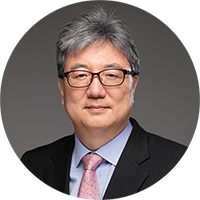 Dr. Chee Hark Harn is Director of the Seed R&BD Headquarter at ToolGen Inc. Since 2018, ToolGen Inc. has been developing new genetic resources and seeds using CRISPR/Cas9 technology. Dr. Harn majored in Biology at Chung-Ang University, Korea, and he moved to the USA for his M.S. (OSU, Oregon) and Ph.D. (Rutgers Univ., New Jersey). As a graduate student, he built up his science background in Genetics, Biochemistry, and Plant Molecular Biology. For his postdoc training, he worked on Plant Biotechnology, focusing on starch and sucrose biosynthesis’s metabolic engineering. He went back to Korea in 1996 and worked at the Korea Research Institute of Bioscience and Biotechnology (KRIBB) as a research scientist for three years. He then moved to Nongwoo Bio Co., a seed company, serving as a project leader, a Biotechnology Institute director, and a director of the R&D Headquarter.
Dr. Chee Hark Harn is Director of the Seed R&BD Headquarter at ToolGen Inc. Since 2018, ToolGen Inc. has been developing new genetic resources and seeds using CRISPR/Cas9 technology. Dr. Harn majored in Biology at Chung-Ang University, Korea, and he moved to the USA for his M.S. (OSU, Oregon) and Ph.D. (Rutgers Univ., New Jersey). As a graduate student, he built up his science background in Genetics, Biochemistry, and Plant Molecular Biology. For his postdoc training, he worked on Plant Biotechnology, focusing on starch and sucrose biosynthesis’s metabolic engineering. He went back to Korea in 1996 and worked at the Korea Research Institute of Bioscience and Biotechnology (KRIBB) as a research scientist for three years. He then moved to Nongwoo Bio Co., a seed company, serving as a project leader, a Biotechnology Institute director, and a director of the R&D Headquarter.
Dr. Harn has served in several Universities, as an Adjunct Professor, and Academic Societies, as a president (Korean Society of Plant Biotechnology and Korean Society for Horticultural Science), during the last 20 years. He has also served as a committee member of many government-organized meetings, including the National Science & Technology Council, Korea.
Breakout Session 3 - Facilitator and Rapporteur
Dr. Yong Pyo Lim, Department of Horticulture, Chungnam National University, Korea
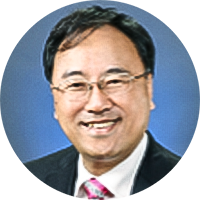 Dr. Yong Pyo Lim got his Ph.D. at University of Rhode Island, USA and later joined Yale University as a postdoc. In 1992, he was offered a professorship at the Department of Horticulture, Chungnam National University, where he started to research the genomics of Chinese cabbage, coordinating genetics and breeding studies, as it is the second most valuable crop with a long agricultural history in Korea. With minimal biotechnology facilities, he developed world class resources for the genome sequencing project, such as BAC library, standard genetic mapping, etc. of Chinese cabbage.
Dr. Yong Pyo Lim got his Ph.D. at University of Rhode Island, USA and later joined Yale University as a postdoc. In 1992, he was offered a professorship at the Department of Horticulture, Chungnam National University, where he started to research the genomics of Chinese cabbage, coordinating genetics and breeding studies, as it is the second most valuable crop with a long agricultural history in Korea. With minimal biotechnology facilities, he developed world class resources for the genome sequencing project, such as BAC library, standard genetic mapping, etc. of Chinese cabbage.
Dr. Lim has continued to research Chinese cabbage with modern genomic technologies. He started the Multinational Brassica Genomics Project (MBGP) in 2003 with collaborating scientists from Australia, Canada, China, UK, and USA. He chaired the MBGP for several consecutive years to achieve the whole genome sequencing. In 2011, draft genome of Brassica rapa was published in Nature Genetics with the help of Next Generation Sequencing technologies and was introduced as a model genome sequence for the genus Brassica. He has published over 290 peer reviewed research articles and authored 14 books about Brassica genetics and genomics. Another one of his achievements is the collection of over 6,000 Brassica germplasms from around the world, which is supposed to be one of the largest germplasm collections of Brassica. He has supported germplasms with renowned scientists and companies around the world for conducting their research to improve Brassica varities. These efforts paved way for him to serve as the director of Golden Seed Project (GSP) Vegetable Seed Center to boost the vegetable seed industry in Korea.
Risk Assessment and Regulation of Genome Edited Plants: European Union
Mr. René Custers, VIB, Belgium
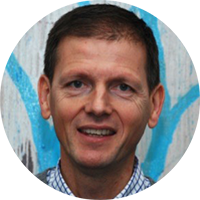 René Custers is trained in molecular biology and joined VIB – the Flanders Institute for Biotechnology – in 1997. He has more than 25 years of experience in regulatory affairs, biosafety, and the societal aspects of modern biotechnology. He is an expert in the legislation and safety of GMOs and genome edited organisms and has been very active in the European debate on the regulatory status of genome edited organisms. In this context he has also contributed to several publications. At VIB, he coordinates the institutes’ policies on regulatory compliance, (bio)safety, ethics and integrity. He is also involved in science communication activities to a wider audience. He is a member of the Belgian Biosafety Advisory Council, and member of the board of EU-SAGE (European Sustainable Agriculture through Genome Editing).
René Custers is trained in molecular biology and joined VIB – the Flanders Institute for Biotechnology – in 1997. He has more than 25 years of experience in regulatory affairs, biosafety, and the societal aspects of modern biotechnology. He is an expert in the legislation and safety of GMOs and genome edited organisms and has been very active in the European debate on the regulatory status of genome edited organisms. In this context he has also contributed to several publications. At VIB, he coordinates the institutes’ policies on regulatory compliance, (bio)safety, ethics and integrity. He is also involved in science communication activities to a wider audience. He is a member of the Belgian Biosafety Advisory Council, and member of the board of EU-SAGE (European Sustainable Agriculture through Genome Editing).
Risk Assessment and Regulation of Genome Edited Plants: Nigeria
Dr. Rufus Ebegba, Director General, National Biosafety Management Agency, Nigeria
 Rufus Eseoghene Ebegba (Ph.D.) is the Pioneer Chairman of the African Union Biosafety Regulators Forum, Pioneer Chairman of the Steering Committee of the West African Biosafety Regulators Forum and Pioneer Director General/Chief Executive Officer of the National Biosafety Management Agency (NBMA). As the DG/CEO of NBMA, he is responsible for the provision of regulatory framework, institutional and administrative mechanisms for safety measures in the application of modern biotechnology in Nigeria, with the view to preventing any adverse effect on human health and biodiversity. His activities in this regard have elevated him and indeed Nigeria to leadership positions internationally in the areas of biosafety and biodiversity conservation. He has over 30 years of working experience in the areas of Administration, Biosafety Management, Biodiversity Conservation, Biotechnology and sustainable utilization of renewable natural resources. He has a Ph.D. in Biodiversity, M.Sc. in Environmental Biology, and B.Sc. Biodiversity and has received numerous awards for hard work and service to humanity.
Rufus Eseoghene Ebegba (Ph.D.) is the Pioneer Chairman of the African Union Biosafety Regulators Forum, Pioneer Chairman of the Steering Committee of the West African Biosafety Regulators Forum and Pioneer Director General/Chief Executive Officer of the National Biosafety Management Agency (NBMA). As the DG/CEO of NBMA, he is responsible for the provision of regulatory framework, institutional and administrative mechanisms for safety measures in the application of modern biotechnology in Nigeria, with the view to preventing any adverse effect on human health and biodiversity. His activities in this regard have elevated him and indeed Nigeria to leadership positions internationally in the areas of biosafety and biodiversity conservation. He has over 30 years of working experience in the areas of Administration, Biosafety Management, Biodiversity Conservation, Biotechnology and sustainable utilization of renewable natural resources. He has a Ph.D. in Biodiversity, M.Sc. in Environmental Biology, and B.Sc. Biodiversity and has received numerous awards for hard work and service to humanity.
Risk Assessment and Regulation of Genome Edited Plants: Philippines
Dr. Flerida Carino, Department of Science and Technology, Biosafety Committee, Philippines
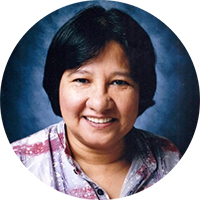 Dr. Flerida Cariño retired as a full professor of Biochemistry from the University of the Philippines, Diliman and was a former director of two institutes of the University: the Institute of Chemistry and the Institute of Environmental Science and Meteorology. She holds a Ph.D. in Insecticide Toxicology from Texas A&M University and has worked extensively with insecticide resistance genetics, biochemistry, and molecular biology. Dr. Cariño is currently the Physical Scientist member of the Department of Science and Technology (DOST) Biosafety Committee and has been involved in drafting policy and regulation of genetically modified organisms since 1994. She has served as faculty in several local and international training programs on food safety and environmental risk assessment for several international organizations involved in biosafety capacity building and for various Philippine government institutions involved in the regulation of genetically modified organisms. She was a member of the Scientific Advisory Board of the Organization for the Prohibition of Chemical Weapons (OPCW) and has actively represented the Philippine position in the Convention on Biological Diversity and meetings of parties to the Cartagena Protocol on Biosafety of Living Modified Organisms.
Dr. Flerida Cariño retired as a full professor of Biochemistry from the University of the Philippines, Diliman and was a former director of two institutes of the University: the Institute of Chemistry and the Institute of Environmental Science and Meteorology. She holds a Ph.D. in Insecticide Toxicology from Texas A&M University and has worked extensively with insecticide resistance genetics, biochemistry, and molecular biology. Dr. Cariño is currently the Physical Scientist member of the Department of Science and Technology (DOST) Biosafety Committee and has been involved in drafting policy and regulation of genetically modified organisms since 1994. She has served as faculty in several local and international training programs on food safety and environmental risk assessment for several international organizations involved in biosafety capacity building and for various Philippine government institutions involved in the regulation of genetically modified organisms. She was a member of the Scientific Advisory Board of the Organization for the Prohibition of Chemical Weapons (OPCW) and has actively represented the Philippine position in the Convention on Biological Diversity and meetings of parties to the Cartagena Protocol on Biosafety of Living Modified Organisms.
Risk Assessment and Regulation of Genome Edited Plants: United States
Dr. Kayla Knilans, Biological Scientist, USDA APHIS
 Kayla Knilans is a Policy Advisor in Animal and Plant Health Inspection Service (APHIS), Biotechnology Regulatory Service (BRS)’s Policy, Program, and International Collaboration (PPIC). She joined BRS in 2018 as a AAAS Science & Technology Policy Fellow and began a full-time position in 2020. She has a Ph.D. in pharmacology from the University of North Carolina and worked at the National Institutes of Health as a postdoctoral researcher. Prior to coming to BRS, she studied human diseases using mouse models, including infectious diseases, cancer, and inflammatory bowel disease.
Kayla Knilans is a Policy Advisor in Animal and Plant Health Inspection Service (APHIS), Biotechnology Regulatory Service (BRS)’s Policy, Program, and International Collaboration (PPIC). She joined BRS in 2018 as a AAAS Science & Technology Policy Fellow and began a full-time position in 2020. She has a Ph.D. in pharmacology from the University of North Carolina and worked at the National Institutes of Health as a postdoctoral researcher. Prior to coming to BRS, she studied human diseases using mouse models, including infectious diseases, cancer, and inflammatory bowel disease.
Risk Assessment and Regulation of Genome Edited Plants: United States (Panelist)
Dr. Deshui Zhang, Branch Chief, USDA APHIS
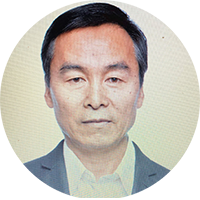 Deshui Zhang is the Branch Chief of Plants Branch in Animal and Plant Health Inspection Service (APHIS), Biotechnology Regulatory Service (BRS)’s Biotechnology Risk Analysis Program (BRAP), and has been with BRS for over five years. He has a Ph.D. in molecular genetics with more than 10 years of biotechnology industry experience and over 10 years of academic experience researching plant biotechnology, genetics, genome mapping, and genomics. He had developed modified plants using genetic engineering and some products successfully entered commercial market.
Deshui Zhang is the Branch Chief of Plants Branch in Animal and Plant Health Inspection Service (APHIS), Biotechnology Regulatory Service (BRS)’s Biotechnology Risk Analysis Program (BRAP), and has been with BRS for over five years. He has a Ph.D. in molecular genetics with more than 10 years of biotechnology industry experience and over 10 years of academic experience researching plant biotechnology, genetics, genome mapping, and genomics. He had developed modified plants using genetic engineering and some products successfully entered commercial market.

